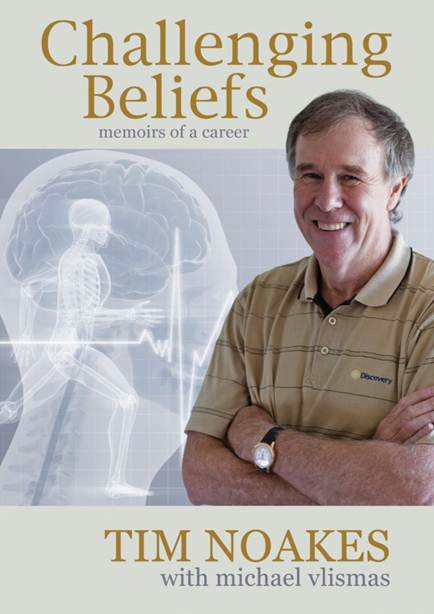Myth Buster
1. ‘You
shouldn’t eat more than three eggs a week’
‘There is no need to limit egg intake, since cholesterol and
fat in the diet lowers rather than increases cholesterol levels,’ says Noakes.
2. ‘Low-fat
dairy products are better for me.’
‘Full-fat dairy products are usually lower in carbohydrates
than low-fat dairy products (which usually have added sugar). They also contain
more nutrients like vitamins and keep you feeling full and satisfied for
longer,’ says Noakes.
3. Cutting
calories is the only way you’ll lose weight.’
‘Calorie-restricted diets may produce respectable weight
losses for the first six months or so, but these losses are unsustainable
because the only certain long-term effect of calorie restriction is to produce
hunger, not weight loss.’ And, adds Noakes, even the most ‘motivated dieter’
will eventually succumb to hunger, which is why the long-term, sustained weight
loss on a calorie-restricted diet is only about 1kg. ‘To sustain significant
weight loss you need to change the macronutrient (carbohydrate, protein and
fat) composition of your diet.’
4. ‘Exercise
is crucial for weight-loss.’
While exercise has definite benefits in term of promoting
health and a feeling of wellbeing, it is not crucial for weight-loss. ‘Despite
running more than 70 marathons and ultramarathons, I was unable to regulate my
body weight until I changed to a low-carbohydrate diet,’ says Noakes.
5. ‘High
cholesterol and heart disease are caused by fat consumption.’
Fat lowers cholesterol, says Noakes, who also isn’t sure
that the accepted wisdom that cholesterol leads to heart disease is correct.
Genetics do, however, play a factor in both base cholesterol levels and a
predisposition to heart disease.
Eating the Noakes way

When Fairlady put out the call to dieticians to provide an
eating plan along the lines of Noakes’ theory, they were reluctant ‘to put
their name to a protein-rich diet’ without seeing further research. But, as
Noakes, Taubes and Enig say, that research is already there: ‘It’s just quickly
demonized by a squad of compliant professionals, doctors, scientists and dieticians,
most of whom have no idea of the part they play in a much larger scam, ‘says
Noakes.
The following is a set of guidelines put together based on
Taubes’ diet, and Noakes’ recommendations. While Noakes says that cutting out
almost all carbohydrates is the best bet for preventing the complications of
obesity, adult-onset diabetes and hypertension (if you already have or are at
risk of developing any of these conditions), Taubes takes a slightly more
moderate approach. ‘After reviewing the evidence without bias (which is not how
the government agencies and health associations have done it), the message is
simple that refined, easily digestible carbohydrates and sugars are bad for us,
and that fat and saturated fat are not. So cutting back on these carbohydrates
to any extent is beneficial.’ Many people worry about getting sufficient fibre
on this diet, but the leafy green veg and full-cream milk assist with bowel
function.
Eat (in unrestricted amounts):
Any cut of:
·
Beef
·
Pork (including bacon and ham)
·
Lamb
·
Veal
·
Chicken
·
Turkey
·
Duck
·
Ostrich
·
Fats including butter and oils
(Note: check all processed meat products for added sugar)
Low-carb veggies including:
·
Artichokes
·
Asparagus
·
Salad greens
·
Brinjal
·
Broccoli
·
Celery
·
Cucumber
·
Leeks
·
Onions
·
Peppers
·
Beetroot
·
Tomato
·
Green beans
·
Brussels sprouts
·
All herbs and spices
Limited amounts of:
·
Full-fat milk (milk is relatively high in carbohydrates)
·
Full-fat yoghurt
·
Cream
·
Cheeses (cheddar, Brie, blue, mozzarella, goats’ cheese, cream
cheese, cottage cheese)
·
Mayonnaise
·
Olives
·
Avocado pear
·
Alcohol (cut it out completely at first, then reintroduce in
limited quantities).
*A note on portion size: ‘You’ll find that your appetite
will very soon start to self-regulate your portion sizes,’ says Noakes – you’ll
feel fuller, quicker, so don’t focus on counting calories or restricting how
much you eat at first.